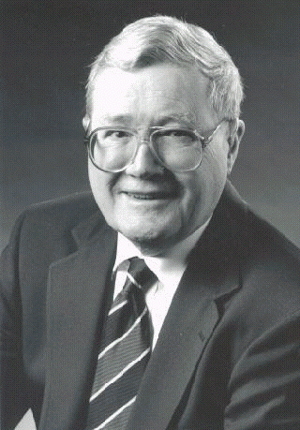
It must be nearly impossible to read much by Gordon Tullock without coming away with—among many other things—the impression that he must have had one of the most creative and fruitful minds among modern social scientists. As Boettke rightly notes: "Tullock was a polymath." How many others could cover medieval Ottoman execution methods, mathematical analysis of voting, the history of Chinese diplomacy, the sex lives of insects, and modern social policies?
But Tullock was more than knowledgeable. Just peruse the chapters of The Calculus of Consent (Buchanan and Tullock 2004 [1962]) that he is known to have authored, or The Social Dilemma (Tullock 1974), or Autocracy (Tullock 1987), or almost any of his many journal articles, especially from the 1950s to the 1980s, and you will find one example after another of brilliant little, although not-quite-fully-developed, insights in one paragraph after another. Thoughts, suggestions, and conjectures that almost never were never fully elaborated, much less tested systematically, but could have been, are just lying there to be picked up.
For some years I kept my own list of things "to be explored" that I stumbled over in Tullock's writings. In fact, the very first international journal article I ever published grew out of just such a throw-away paragraph in Autocracy (Kurrild-Klitgaard 2000). My own interest in the potential disequilibrium of voting in multidimensional spaces came from Tullock's early, brief, and intuitive treatment (Tullock 1967) rather than the heavily technical proofs others had produced over the following decade.
Tullock was, as Buchanan called him, a "natural economist" (Buchanan 1987) in the sense that "the economic way of thinking" came so naturally to him that he could not help constantly taking it to new areas of application. He was always looking for another place to apply methodological individualism, the rational-actor principle, and the focus on exchange: yet another puzzle to be solved, another piece of knowledge to be passed on. In contrast, Tullock had very little interest in yet another minor technical contribution with little relevance to real-world issues.
So, I agree with Boettke's summary of Tullock's importance and that he had deserved a Nobel Prize:
This was a prize that eluded him, and in my opinion he deserved his own prize for this various contributions to the study of human action beyond the realm of. the market, that is, nonmarket decision-making – in law, politics, science, bureaucracies, nonprofits, and nature. Tullock was a trailblazer; he was always stalking taboo subjects and pushing out our intellectual boundaries.
But if Tullock was such a brilliant, inquisitive mind, why did he not receive the praise and rewards many of us think he should have received? There are probably more reasons than one—but in my opinion none of them should have denied him the honors that eluded him.
Was it that Tullock was not as "grand" a thinker as some other economists? Looking at the relatively narrow contributions of some other Nobel laureates, I think this would be a hard point to argue as a stand-alone reason. Tullock's contributions to our understanding of voting, rent-seeking, and log-rolling, and his broad application of the rational-choice paradigm to human behavior, collective action, and our understanding of the law, easily outweigh the contributions of many Nobel laureates.
But I do think a problem was that Tullock so often—and almost always beginning in the mid-1970s or so—left his gold nuggets lying around, not quite polished. He threw 100 ideas up in the air and went on, where many others would have taken 10 of them and developed them further, endlessly applying and extending the insights and building "schools" around them and themselves.
Many others who have grappled with the question of why Tullock did not receive the honors he perhaps deserved have focused on his personality, namely, that he sometimes came across as impolite or even offensive.
Strangely, I never interpreted him that way—and I still remember the shock with which a world-famous Ivy League economist greeted my view that I found Tullock to be "nice": "I have never heard anyone refer to Gordon as being 'nice.'" Well, I think he was. Yes, he was odd, and yes, he could say things that some either would disagree with vehemently or would be taken aback by because of his often-provocative and direct tone and style. But in my many encounters with Tullock—from the first time I met him as a first-year undergraduate at a conference in 1986 to the last time I saw him, a year or so before his retirement—I always found him to be generous, hospitable, and helpful.
Yes, he could say things that some would find impolite or harsh. The first time I saw him after having sent him my doctoral dissertation, he said something like, "You could have spent your time and money more wisely. You used 400 pages to say what you could have said in four words: 'Tullock is always right!'" I thought it was a funny remark—with a kernel of truth in it.
Yes, he could also seem socially handicapped. The combination of his ever-present intellectual focus, his very low voice, and his impaired hearing made dinner or lunch conversations a bit difficult sometimes, to say the least. But compared to at least a handful of Nobel laureates in economics, Tullock did not come off as particularly odd.
Was it his politics? Again, it has been said by more than one economist—including people who actually like and practice public choice analysis—that Tullock had "reactionary" or "right-wing" views that made him out of step with the Zeitgeist.
It is true that he often would argue in favor of deeply unpopular points of view. ("There isn't anything particularly good about democracy, aside from being democratic.") He also seemed to enjoy some degree of being "politically incorrect." But I am not so sure that Tullock was really as much an ideologue as many others believed. I remember the 1994 meeting of the Mont Pèlerin Society in Cannes, when I was standing in the foyer talking with Tullock and Charles Rowley. A young French economics student, whom I knew to be a huge fan of Tullock, approached star-struck and said in a heavy accent, "Professor Tullock! I am such a great admirer! I have always wanted to ask you about libertarianism." Tullock cut him off, saying, "I am not particularly interested in liberty," and walked away, leaving the poor fellow with his jaw on the floor.
Was it rude? An impartial spectator would likely see it as such. I think Tullock—always the homo economicus—was merely trying to save time for both of them. If anything, Tullock was probably a relatively pragmatic consequentialist of some sort--not necessarily a hard-core utilitarian, but broadly interested in what arrangements would tend to produce the best outcomes. Sometimes it would lead his policy conclusions in one direction—other times in another. He was not much of an ideologue, and ultimately everything was up for discussion.
And what about the other explanations that have been thrown around? -- for example, that Tullock was not an economist by formal training. Well, neither was Herbert Simon and Elinor Ostrom. Or that he was not very technical in an age when mathematical prowess was and is so much in vogue. Again, the same can be said about Ostrom, James Buchanan, F. A. Hayek, and Douglass North.
I think that the "real" reason was the sum total of it all. Tullock might have received his Nobel Prize despite being personally odd or being placed on the political right or not being trained as an economist or not publishing highly mathematical models. But all of this together, combined with the fact that he often went on to new ideas and applications rather than building empires around himself, probably made it highly unlikely.
Fortunately for the rest of us, there are still so many insightful nuggets from Tullock lying around, ready to be picked up--perhaps more than many think. I find Boettke's points regarding Tullock's approach being more "praxeological" and less neoclassical than often portrayed particularly important. Anti-rational-choice academics often portray Tullock as the archetypical "economic imperialist"—a view he often attributed to himself. (Tullock 2006 [1976]) But in reality, his approach was much more nuanced and multifaceted than many have appreciated.
References
Buchanan, James M. 1987. "The Qualities of a Natural Economist." In C. K. Rowley, ed., Democracy and Public Choice: Essays in Honor of Gordon Tullock (pp. 9-19). Oxford: Basil Blackwell.
Buchanan, James M., and Gordon Tullock. 2004 (1962). The Calculus of Consent: Logical Foundations of Constitutional Democracy. The Selected Works of Gordon Tullock, Vol. 2, C. K. Rowley, ed. Indianapolis, IN: Liberty Fund.
Kurrild-Klitgaard, Peter. (2000). The constitutional economics of autocratic succession. Public Choice 103(1-2), 63-84.
Tullock, Gordon. 1967. Toward a Mathematics of Politics. Ann Arbor, MI: University of Michigan Press.
_________. 1974. The Social Dilemma: The Economics of War and Revolution. Blacksburg, VA: Center for Study of Public Choice.
_________. 1987. Autocracy. Dordrecht: Kluwer.
_________. 2006 (1976). The Vote Motive (2. rev. ed.), Peter Kurrild-Klitgaard, ed., IEA Hobart Paperback (No. 33). London: Institute of Economic Affairs.
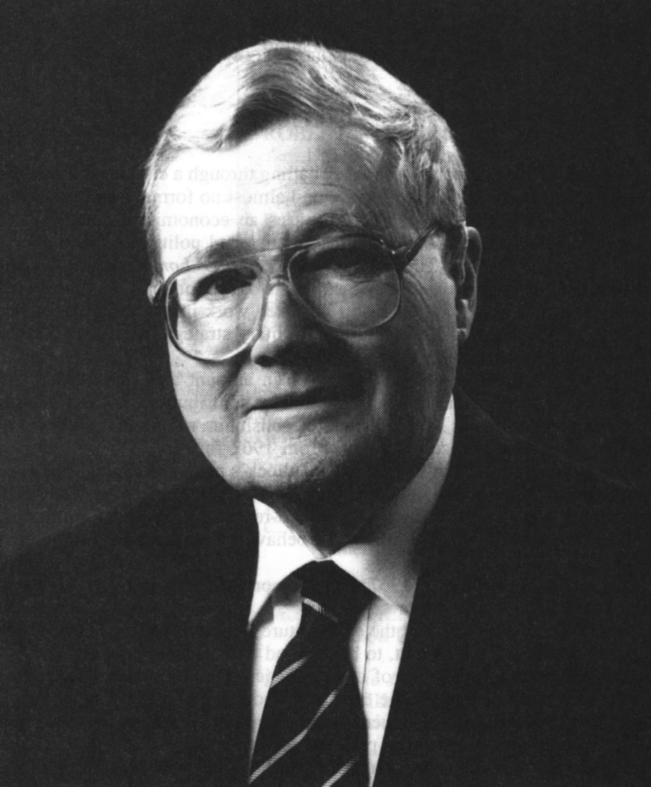
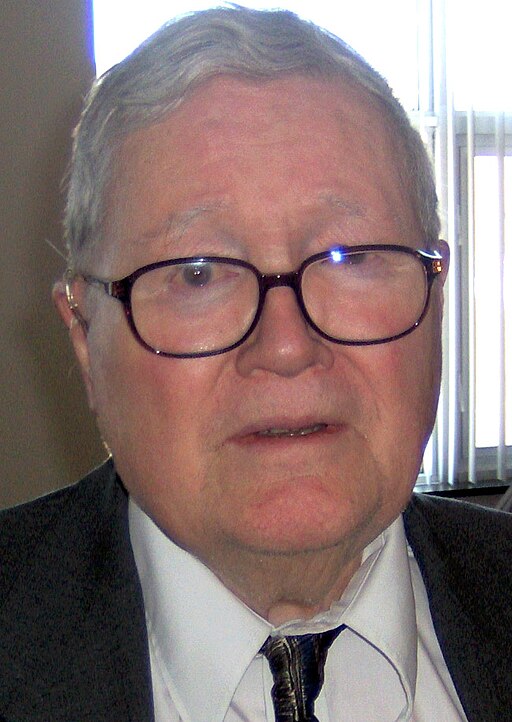
 It must be nearly impossible to read much by Gordon Tullock without coming away with—among many other things—the impression that he must have had one of the most creative and fruitful minds among modern social scientists. As Boettke rightly notes: "Tullock was a polymath." How many others could cover medieval Ottoman execution methods, mathematical analysis of voting, the history of Chinese diplomacy, the sex lives of insects, and modern social policies?
It must be nearly impossible to read much by Gordon Tullock without coming away with—among many other things—the impression that he must have had one of the most creative and fruitful minds among modern social scientists. As Boettke rightly notes: "Tullock was a polymath." How many others could cover medieval Ottoman execution methods, mathematical analysis of voting, the history of Chinese diplomacy, the sex lives of insects, and modern social policies?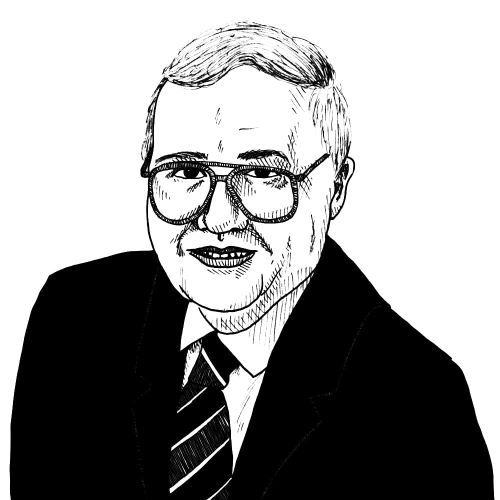 I greatly appreciate the comments from Michael Munger, David Levy, and Peter Kurrild-Klitgaard, and I find myself in agreement with them. We must look at how alternative institutional arrangements impact performance. We must place the economist inside the model not just of economic policy but also of economic science, and we must follow up on the numerous nuggets that Tullock's intuition left for us to pursue in our scientific time and place. Throughout our conversation this month, I hope we will pursue each of these with the detail required to make progress. But right now, I just want to focus on the alternative arrangements of market and nonmarket decision-making.
I greatly appreciate the comments from Michael Munger, David Levy, and Peter Kurrild-Klitgaard, and I find myself in agreement with them. We must look at how alternative institutional arrangements impact performance. We must place the economist inside the model not just of economic policy but also of economic science, and we must follow up on the numerous nuggets that Tullock's intuition left for us to pursue in our scientific time and place. Throughout our conversation this month, I hope we will pursue each of these with the detail required to make progress. But right now, I just want to focus on the alternative arrangements of market and nonmarket decision-making.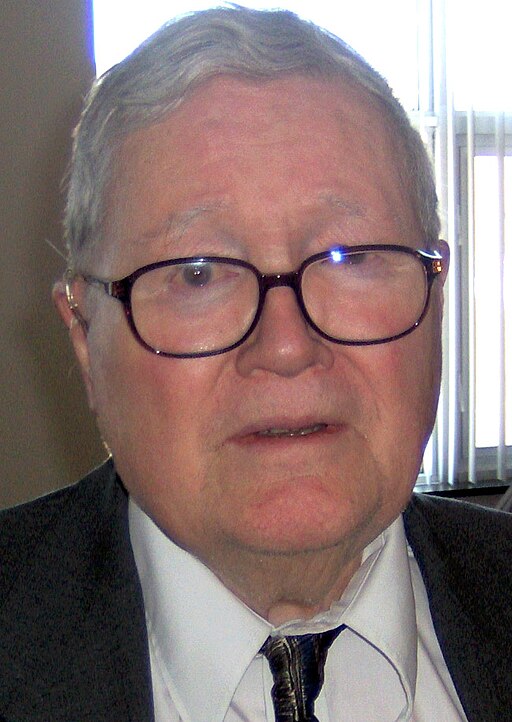 I was talking with Steve Stigler last week at the University of Chicago celebration of his father's work —"Stigler in the 21st century" — about the Nobel snub of George Dantzig for linear programming. The context is this: George Stigler's "diet problem" might be the most famous linear-programming solution in the years before Dantzig's simplex. (The "Stigler diet" is now a Wikipedia entry with a link to modifications with cooking instructions! The claim that it is "delicious" might be evidence why one is well advised not believe things on the web! https://en.wikipedia.org/wiki/Stigler_diet) Steve pointed out that Dantzig had a considerable reputation as a statistician but none whatsoever as an economist. The Nobel Prize doesn't go to outsiders.
I was talking with Steve Stigler last week at the University of Chicago celebration of his father's work —"Stigler in the 21st century" — about the Nobel snub of George Dantzig for linear programming. The context is this: George Stigler's "diet problem" might be the most famous linear-programming solution in the years before Dantzig's simplex. (The "Stigler diet" is now a Wikipedia entry with a link to modifications with cooking instructions! The claim that it is "delicious" might be evidence why one is well advised not believe things on the web! https://en.wikipedia.org/wiki/Stigler_diet) Steve pointed out that Dantzig had a considerable reputation as a statistician but none whatsoever as an economist. The Nobel Prize doesn't go to outsiders.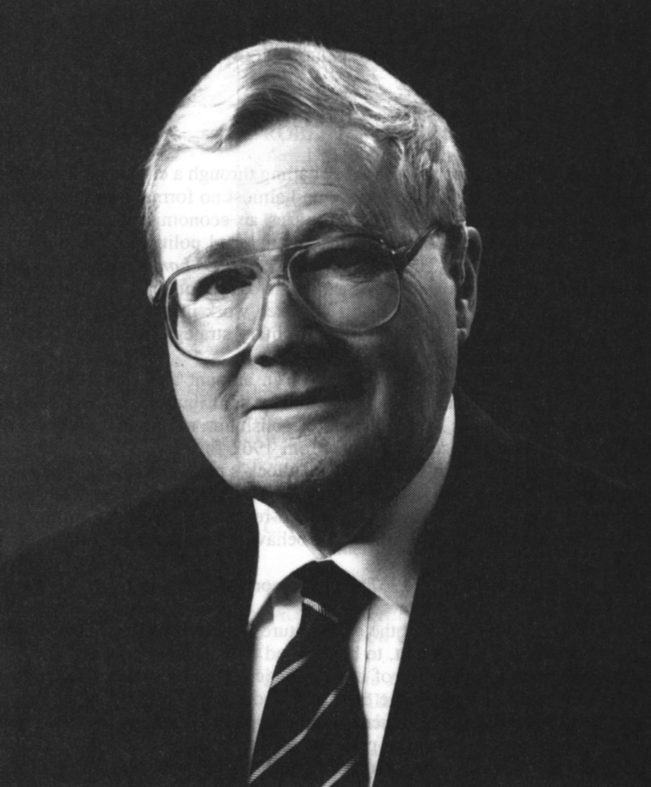 Near the beginning of his "Conversation" response, Pete Boettke says we cannot have prices without property rights. Sure, that's true enough as far as it goes. But I argued that Tullock looked outside of the human context, where prices can't exist, because property rights don't exist.
Near the beginning of his "Conversation" response, Pete Boettke says we cannot have prices without property rights. Sure, that's true enough as far as it goes. But I argued that Tullock looked outside of the human context, where prices can't exist, because property rights don't exist.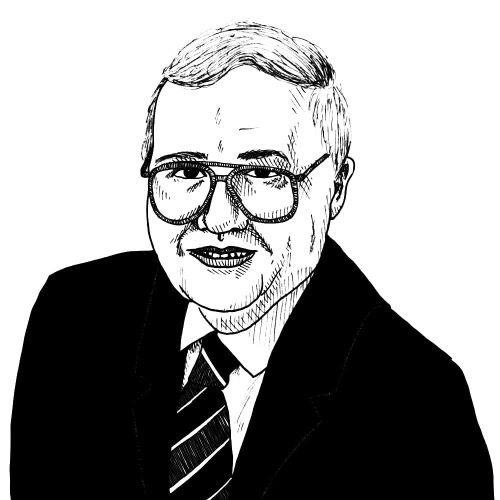 A colleague of Tullock's at the University of Virginia, William Breit, once told me the following story. Every day they would go to the faculty club for coffee or tea, but one day they were slightly off schedule; so when they arrived, their usual seats were taken. Two seats were open, however, at a table where the dean was meeting with a visiting sociology professor from Columbia whom UVa was attempting to entice to join the faculty. Tullock and Breit sit down as a conversation was going on about the current nuclear arms race. The professor was discussing the logic of unilateral disarmament. Rather than stay respectfully quiet, Tullock couldn't take it and piped up: "What do you think would happen if the U.S. unilaterally disarmed?" The professor replied, "Well, the Soviet's would under world pressure follow suit." Tullock scoffed at such a suggestion and said, "By world opinion, you mean you and your friends on the upper west-side of Manhattan." Visibly annoyed, the professor responded, "Well, what do you think would happen?" Tullock quickly replied, "The U.S. would be invaded by Mexico tomorrow." At this the dean and the professor left the faculty club in a huff. Tullock, according to Breit, showed no emotion, took a sip of his coffee and asked Breit in all seriousness, "Why do you think the administration will not promote me?"
A colleague of Tullock's at the University of Virginia, William Breit, once told me the following story. Every day they would go to the faculty club for coffee or tea, but one day they were slightly off schedule; so when they arrived, their usual seats were taken. Two seats were open, however, at a table where the dean was meeting with a visiting sociology professor from Columbia whom UVa was attempting to entice to join the faculty. Tullock and Breit sit down as a conversation was going on about the current nuclear arms race. The professor was discussing the logic of unilateral disarmament. Rather than stay respectfully quiet, Tullock couldn't take it and piped up: "What do you think would happen if the U.S. unilaterally disarmed?" The professor replied, "Well, the Soviet's would under world pressure follow suit." Tullock scoffed at such a suggestion and said, "By world opinion, you mean you and your friends on the upper west-side of Manhattan." Visibly annoyed, the professor responded, "Well, what do you think would happen?" Tullock quickly replied, "The U.S. would be invaded by Mexico tomorrow." At this the dean and the professor left the faculty club in a huff. Tullock, according to Breit, showed no emotion, took a sip of his coffee and asked Breit in all seriousness, "Why do you think the administration will not promote me?"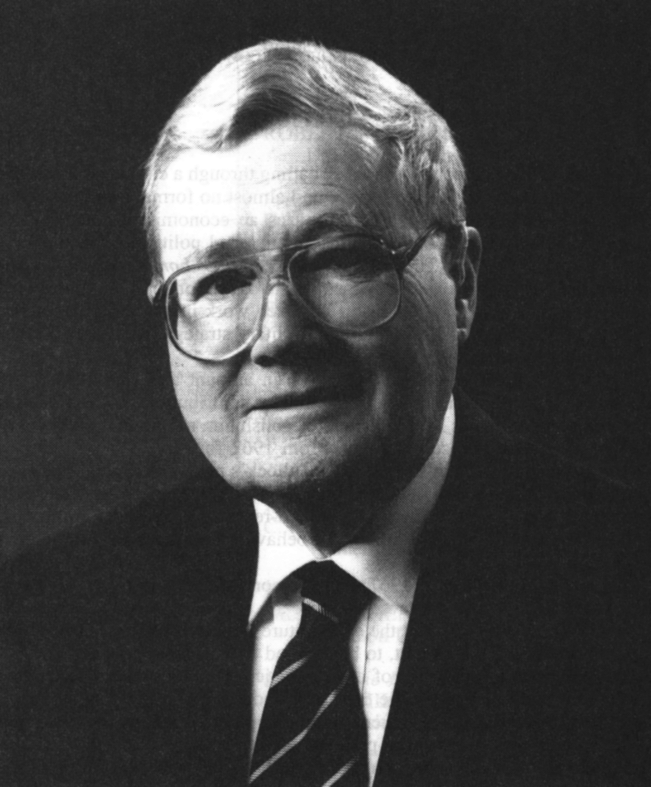 Since it's the season of thanksgiving, I thought I'd give thanks for Gordon Tullock. Knowing Gordon, he'd say, "You're welcome," because only Gordon Tullock was responsible for Gordon Tullock.
Since it's the season of thanksgiving, I thought I'd give thanks for Gordon Tullock. Knowing Gordon, he'd say, "You're welcome," because only Gordon Tullock was responsible for Gordon Tullock.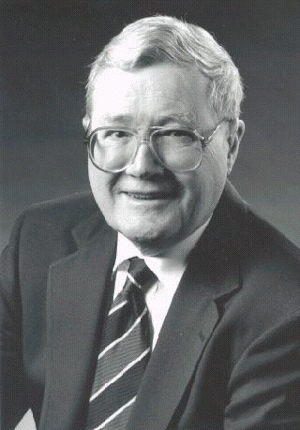
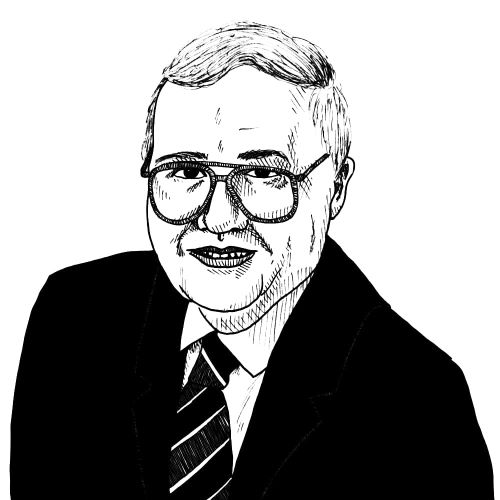
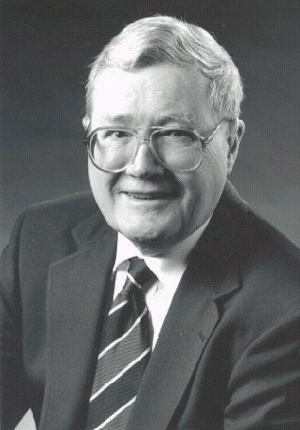 I want to bring up a point that few have touched directly upon in this conversation, namely, Tullock's ideological position. After all, this is "Liberty Matters" run by Liberty Fund. So what were Tullock's views on liberty?
I want to bring up a point that few have touched directly upon in this conversation, namely, Tullock's ideological position. After all, this is "Liberty Matters" run by Liberty Fund. So what were Tullock's views on liberty?